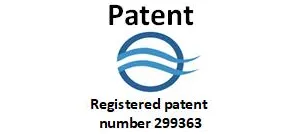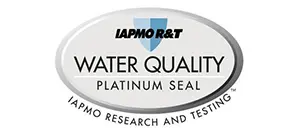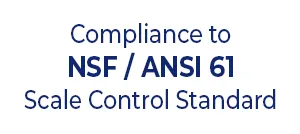For decades, the water industry has touted ultrapure water as the ultimate health standard. Reverse osmosis (RO), desalination, and distillation systems have been sold as foolproof ways to eliminate all impurities. But the truth? A little more nuanced. By removing the “bad,” you often lose the “good” as well—wiping out essential minerals in one sweep.
A comprehensive report by the World Health Organization (WHO) warns that long-term consumption of low-mineral water – from desalination plants, home RO units, even “pure” bottled water – can have effects that go far beyond taste.
1. Minerals in Water – The Silent Contributor to Health
Food is still the main source of minerals – but water can contribute significantly: 20-40% of your daily magnesium and a significant amount of calcium. Epidemiological studies and WHO findings show that:
- Communities with harder water enjoy lower rates of cardiovascular disease.
- In Taiwan, magnesium in drinking water has been linked to a reduced risk of very low birth weight.
- In Finland, low magnesium in water has been linked to an increased risk of sudden cardiac death.
Surprising fact: Cooking vegetables, grains or meat in water low in minerals can cause up to 60% loss of magnesium and calcium in your food (World Health Organization, 2009).
2. When “Too Pure” Becomes a Health Risk
Ultrapure water (RO, desalinated, distilled) is not just bland—it’s chemically aggressive. It tends to leach metals from plumbing and storage systems. For example, in the US, RO-treated water has been shown to leach lead from old pipes, leading to lead poisoning in infants (CDC, 2004).
Water low in calcium and magnesium may also:
- Reduce protection against toxic metals such as lead and cadmium.
- Make the water taste “flat,” which reduces thirst and increases the risk of dehydration.
- Remove all chlorine—which can increase bacterial growth in home aquariums.
3. The Heart Health Connection
Over 50 years of research shows clear links between mineral levels in water and heart disease:
- In England and Wales, softer water was associated with an increase in cardiovascular cases.
- In Sweden, women who drank magnesium-rich water had a lower risk of fatal heart attacks.
- In France, plans to implement large-scale RO for the public water of Paris have drawn backlash from the water sector—citing concerns about wastewater emissions and mineral losses (see Water News Europe and Acha Water).
4. Additional Risks for Infants
Infants fed formula mixed with low-mineral water can develop significant deficiencies at a critical growth stage – especially in homes using aggressive water such as RO or desalinated water.
5. WHO Guidelines – What Is the Minimum Amount in Water?
After desalination or intensive filtration, the WHO recommends that drinking water contain at least:
- 30 mg/L calcium
- 10 mg/L magnesium
- 100 mg/L total dissolved solids (TDS)
6. So Who Says “No More RO”? And What Are They Using Instead?
India – The Only Known Country to Restrict RO
India’s National Green Tribunal (NGT) has banned the use of RO filters in areas where TDS is below 500 mg/L, citing huge water waste (up to 3 times more water wasted per liter purified) and unnecessary removal of essential minerals. Later reports reaffirm that the ban applies specifically to areas where water already meets drinking standards and does not require RO.
Europe (and the EU) – Not Banning, but Encouraging Alternatives
There is no outright ban on RO in Europe. The EU Drinking Water Directive requires water to maintain certain mineral levels—so water that has been fully demineralized without remineralization may not meet the requirements.
In Germany, other water treatment technologies that retain minerals are preferred in the public supply, while RO is mostly limited to niche industrial uses.
In France, plans to implement large-scale RO for the public water of Paris have drawn backlash from the water sector—citing concerns about wastewater emissions and mineral losses.
Developing Countries – Simpler Options Prevail
In many resource-poor countries, RO is avoided because it is expensive and technically demanding.Instead, systems such as solar disinfection (SODIS), chlorine, biological sand, and ceramic filters are more common—they are lighter, cheaper, and better suited to local needs (Journal of Public Health and Epidemiology).
7. TipaTech LotusDY – Clean, Mineral-Rich, Antioxidant Water
Unlike most filtration systems that only remove contaminants, the LotusDY from TipaTech delivers truly healthy water with advanced features designed for both safety and wellness:
- No-Smosis™ Technology – Filters down to 0.007 microns while preserving essential minerals.
- Magnesium Enrichment – Option to add magnesium, supporting heart, bone, and nervous system health.
- Adjustable TDS (100–500) – Customize mineral levels to meet WHO’s recommended healthy range.
- Negative ORP (Oxidation Reduction Potential) – Produces antioxidant-rich water that neutralizes free radicals, reduces oxidative stress, supplying high quality antioxidant water and may slow cellular aging.
- Eco-Friendly Design – Operates without electricity and with zero water waste.
With its unique combination of powerful filtration, mineral preservation, and antioxidant benefits, LotusDY is more than a water purifier – it’s a complete solution for health, vitality, and sustainable living.












